SPEAKER INFORMATION: SESSION FOUR
MEET THE SYMPOSIUM SPEAKERS OF SESSION FOUR
Terra Range: Alu free liquid board packaging
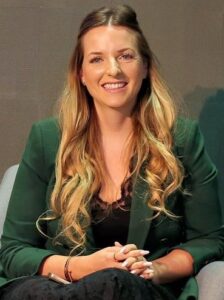
Nicola Wagstyl
Nicola began her journey at SIG in 2018 as executive assistant to the regional president for the Middle East and Africa. Her deep interest in purpose-driven work and cross-functional collaboration led her to transition into a dedicated sustainability role, where she has been leading the company’s regional sustainability efforts for the past three years.
As sustainability manager, Nicola plays a key role in driving initiatives across climate action, circularity, responsible sourcing, and social impact – translating SIG’s global sustainability goals into meaningful regional action. Her work supports SIG’s mission to deliver food safely, sustainably, and affordably, while advancing long-term environmental and social value.
She has led several impactful projects, including the deployment of two solar energy projects at the plant in Riyadh and SIG’s MEA head office, and the successful renewal of its LEED Platinum green building certification. Nicola was instrumental in launching the Cartons for Good initiative locally, exploring community-based solutions to food waste and access to nutrition.
In South Africa, she spearheads the producer responsibility organisation (PRO), Fibre Circle’s action plan to strengthen beverage carton collection and recycling in the Western Cape, building strong partnerships with local recyclers and other stakeholders.
Nicola’s approach is rooted in collaboration, innovation, and measurable results. She works across teams and with external partners to bring SIG’s sustainability strategy to life –bridging high-level ambition with grassroots action.
She holds a sustainability business management certificate from the University of Cambridge, enhancing her strategic acumen in embedding sustainability into business models and decision-making processes.
Currently, Nicola is involved in promoting SIG Terra Alu-free Full Barrier, a breakthrough in circular packaging that eliminates aluminium, supporting a transition to fully renewable and recyclable solutions.
She believes the future of packaging lies in rethinking what’s possible – through collaboration, innovation, and purpose-led leadership.
Abstract
SIG Terra Alu-free Full Barrier: Rethink all you know
A game-changing packaging innovation, SIG Terra Alu-free Full Barrier eliminates aluminium, enhancing recyclability and reducing environmental impact. Made from renewable materials, it’s designed for a circular economy – offering high performance, full barrier protection, and a more sustainable future for food and beverage packaging.
Out of sight, out of mind
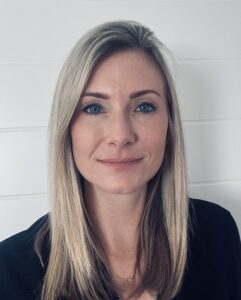
Kirsten von Hoesslin
Kirsten is an experienced sales manager in the field of biological research, currently part of the Industry team at bioMérieux. With a strong background in driving sales and strategic business growth, Kirsten has developed a deep understanding of the synergy between sales and scientific innovation. Now at bioMérieux, Kirsten is passionate about educating customers on how to use data to optimise decision making, ensuring that every decision is data-driven and effective.
Guided by a public health purpose and a pioneering attitude, at bioMérieux we continue to listen to our customers by anticipating market trends and heavily investing in new science and technologies, such as data management, probabilistic modelling and next generation genomics. This enables our customers to gain insight into cause and effect relationships to help the food processing industry learn and adapt, and to keep up with the rapidly changing operating environment leading to shifting and emerging risks.
Abstract
Out of sight, out of mind! Getting to know the residential microbial community in your facility.
They are living alongside us and can be challenging to get rid of! High-risk pesky pathogens or microbial spoilers can cause huge damage, so how do we deal with them and get to know them better? There is an abundance of data that can be collected across food processing — from raw materials to end-user consumption — your smallest data will be the most important anchor points to drive actionable insights. Join us to understand how to speed up decision making and catch pathogen problems earlier.
Testing of veterinary drug residues in milk and milk products
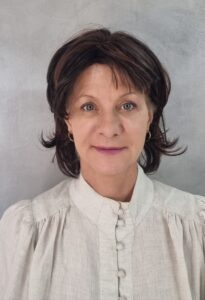
Azel Swemmer
Azel Swemmer, a visionary entrepreneur, has established a ground-breaking company, Food and Drug Assurance Laboratories, that specialises in chromatography, a critical technology for chemical analysis.
With a robust background in analytical chemistry and a passion for innovation, Azel has developed advanced chromatography solutions that cater to a wide range of industries, including pharmaceuticals, environmental testing, and biotechnology.
The company is at the forefront of delivering precise and reliable separation techniques, enhancing the ability to analyse complex mixtures with unparalleled accuracy. By leveraging state-of-the-art technology and a commitment to excellence, Azel’s venture is poised to revolutionise the application of chromatography in the South African industry, offering bespoke solutions that meet the ever-evolving demands of scientific research and industrial applications.
Abstract
Testing of veterinary drug residues in milk and milk products
The analysis of chemical residues in milk and dairy products is crucial for ensuring food safety and consumer health. Various contaminants, including antibiotics, pesticides, and heavy metals, can be detected using advanced techniques such as chromatography and mass spectrometry. These methods help regulate residue levels, ensuring compliance with safety standards and regulations.
Perchlorates (report on study)
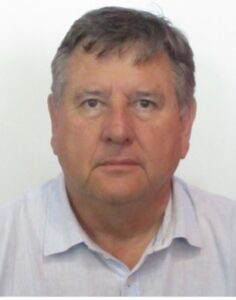
Jompie Burger
Mr Jompie Burger holds degrees in Environmental Health and Public Administration, and has over 30 years of experience in South Africa’s dairy regulatory and food safety disciplines. He is the general manager of the Dairy Standard Agency (DSA) of South Africa and actively contributes to various industry technical committees, including the South African Bureau of Standards (SABS) standing committees. In addition, he serves as the technical secretary of the South African national committee of the International Dairy Federation (IDF) and participates in the IDF’s standing committees. Mr Burger is also a member of the African Organisation for Standardisation (ARSO) technical committee for milk and milk products and serves as the project manager of the Milk SA regulation and standards project. The DSA is an independent non-profit organisation dedicated to promoting the improvement of dairy quality, food safety, and metrology compliance in the interest of both the dairy industry and consumers.
Dairy research sustainable diets (nLCA)

Dr Stephan Peters
Dr Stephan Peters is manager: Dairy, nutrition, health and sustainability at the Dutch Dairy Association (since 2025). He is specialised in translating complex scientific issues to understandable and applicable messages. He works on the role of dairy in healthy diets, dairy matrix and the combination of health and nutrition in sustainable diets. Dr Peters worked at the Netherlands Nutrition Centre as science manager (2007–2015) and was co-responsible for the development of the current Dutch food-based dietary guidelines. Dr Peters obtained a PhD on the topic of nutritional interventions in cancer patients with involuntary weight loss (cachexia) at the University of Utrecht in the Netherlands.
Abstract
Nutritional LCAs (nLCAs): Integrating nutrition in life cycle assessments in dietary advise for healthy and sustainable diets
The definition of sustainable diets is most often based on the environmental footprint of foods in the diet. The environmental footprint of foods is based on Life Cycle Assessments (LCAs). However, LCAs are not developed for dietary advice. In this presentation, different approaches are given to integrate nutritional aspects into LCAs, making them applicable for policies towards more healthy and sustainable diets.
Enhancing quality and safety in South Africa's dairy industry: The role of analytical testing
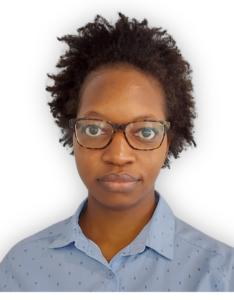
Mutsa Rwasoka
Mutsa Rwasoka has an MSc. in Food safety and a B.Tech. (Honours) in Food Science and Technology. Mutsa joined Merieux NutriSciences (Swift Silliker) in 2012, working with labelling and regulatory compliance. In her current role she serves as a technical specialist – food science & regulatory, working with food regulatory compliance, legislation, education for food safety management systems, and technical support for food science centre projects. Mutsa is a SAAFoST member and a SACNASP-registered professional scientist.
Abstract
Enhancing quality and safety in South Africa’s dairy industry: The role of analytical testing.
This presentation explores the role of analytical testing in enhancing quality control and safety within South Africa’s dairy industry. It covers key testing methods, the challenges faced, and the technological innovations that can be leveraged. The talk highlights the importance of testing in ensuring product consistency and meeting local and international standards.
